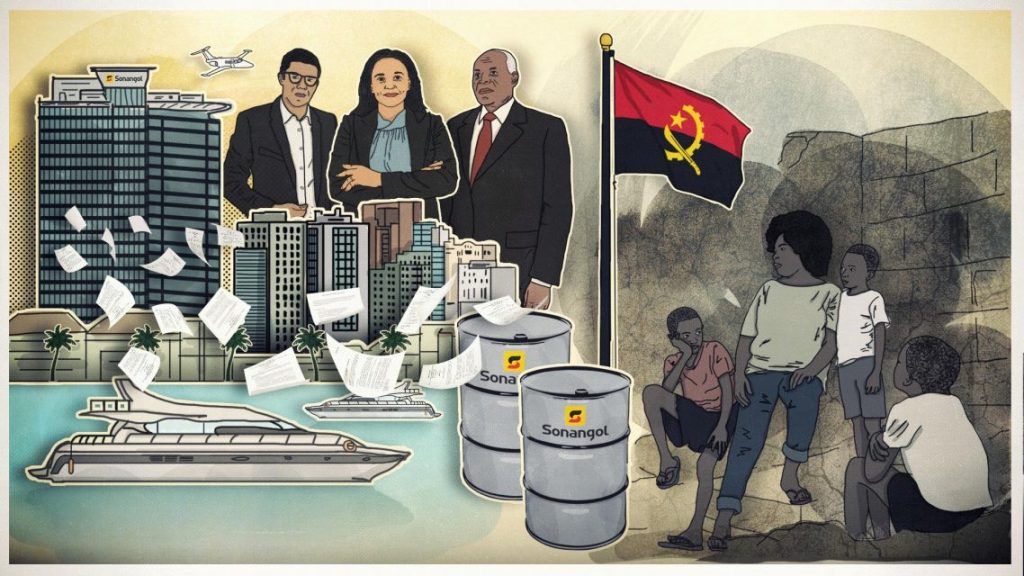Luanda Leaks moves communication professionals

By Sandro Rego

A scandal is giving a lot of work to agencies and communication areas of several companies in Portugal and Angola. The case is the “Luanda Leaks,” the investigation that revealed, among other issues, how Isabel dos Santos, daughter of a former Angolan president, brought in at least 115 million USD from the coffers of the state oil company Sonangol, of which she was the CEO, to an offshore company in Dubai controlled by people close to it. The complaint came after more than 715,000 files were analyzed by the ICIJ (International Consortium of Investigative Journalism) formed by 249 investigative journalists from more than 90 countries and in partnership with more than 100 media organizations, including Portuguese Expresso and SIC.
The role of the ICIJ is precisely to reveal international crimes, and cases of corruption and abuse of power. In addition to the “Luanda Leaks” – which shows how the richest woman on the African continent has made a fortune over the past decades – the consortium was also responsible for cases such as the “Panama Papers” and the “Bribery Division,” which involves Brazilian company Odebrecht. The revelations made by the journalistic investigation caused a tsunami in several organizations in Portugal where Isabel dos Santos is a shareholder or maintains some relationship. To get an idea of the scale of the investigation, more than 400 companies that have been linked to it in the last three decades have been identified.
Due to the scope and impact caused by the disclosure, the subject is highlighted daily in the Portuguese news. “Luanda Leaks” became a mandatory item in the conversation circles across the country and certainly increased the workload of agencies and the communication areas of the companies involved — or not — with the scandal. The average citizen only sees the news on the topic, and many have no idea of the number of professionals involved both in investigating journalism or working within companies to define communication strategies to minimize damage to the image of organizations.
Dozens of hours of work have already been spent on reporting, information gathering, positioning for the various audiences involved, training for interviews, meetings with lawyers and compliance professionals, etc. This situation only proves the need and the importance of establishing specialized offices and committees in crisis in companies, in addition to robust compliance policies that involve the entire organization and regulate public-private relations.
In cases like “Luanda Leaks,” it is essential that those involved ensure the coherence and alignment of the positions according to the public and the strategy adopted to minimize reputational damage. There were also those who decided to keep silence as a way to escape the negative impact, and those who communicated only the essentials for fear of an even greater exposure. Each case must be evaluated with common sense, ethics, and professionalism, and varies according to the company’s level of involvement in the scandal. In these cases, experience in crisis management matters — and it matters a lot.
Sandro Rego is CEO of Priori, a communications agency in Portugal dedicated to social impact causes and projects. He was general manager of FleishmanHillard agency and communications executive at Banco Safra, Boticário Group, Bunge, and Companhia Siderúrgica Nacional (CSN). He was “Communicator of the Year” at the Aberje 2014 Award. He currently lives in Portugal and is the editor of BRpr’s “Also in Portuguese” section.
Destaques
- Painel de Cases do Prêmio Aberje antecipa tendências da comunicação corporativa
- Conectando dados: insights da quinta reunião do Comitê de Cultura de Dados e Mensuração de Resultados
- CEOs discutem desafios da comunicação na liderança corporativa
- Belém recebe lideranças para discutir sustentabilidade e desenvolvimento na Amazônia
- Quinta reunião do Comitê de Comunicação Interna, Cultura Organizacional e Marca Empregadora debate engajamento de colaboradores
ARTIGOS E COLUNAS
Leila Gasparindo A força da Comunicação Integrada: unindo Influenciadores e assessoria de imprensaAgnaldo Brito Diálogo Social e Comunicação Corporativa: A Construção do Valor na Era dos DadosHamilton dos Santos O esporte na mira da crise climáticaGiovanni Nobile Dias Agilidade sem perder a qualidade: desafios da comunicação contemporâneaRicardo Torreglosa A consolidação do projeto de integração entre Comunicação e RelGov



























